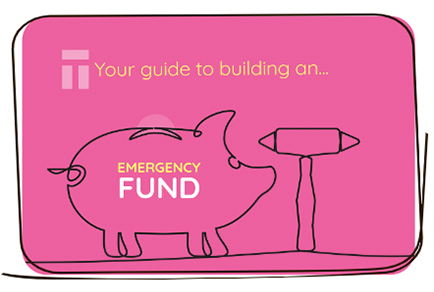Understand the more technical terms around savings
We try to avoid using jargon and keep things simple, but sometimes we need to use specific financial terms. So, if you’re looking to save or invest your money, here is a guide to some of the specific words and phrases you might come across.
Annual Equivalent rate AER
This is the actual annual rate of interest, taking into account how often the interest is added to your account and the effect of compounding. The higher the AER, the better the return on your savings.
Captial
Your capital is the overall amount of money invested.
Compounding
Compounding is when you reinvest the interest you earn. It's essentially 'interest on interest' and the effect is to boost returns to generate additional earnings over time.
Easy access account
Funds can be withdrawn immediately from an easy access account.
Fixed Rate Bond (FRB)
A fixed rate bond is a type of savings account which lasts for a set period of time, during which the interest you earn does not change, even if the Bank of England base rate does.
Gross rate and net rate
The gross interest rate is the interest rate you’ll get before any income tax is deducted at the appropriate rate.
The net rate is the rate which would be payable after allowing for the deduction of income tax at the specified rate from the gross rate.
Individual Savings Account (ISA)
This is a tax-free way of saving or investing money. There are annual limits regarding how much you can save each year. Visit the Government ISA web page for the current limits.
Interest
This is what banks and building societies pay you if you keep your money with them. Interest rates can go up and down, or they can be fixed, and the amount of interest paid can be calculated daily, monthly or annually.
Notice Account
The account holder must notify their bank or building society a number of specified days or months before they wish to take money out of their account.
Penalty
Penalties can be incurred if you break the conditions of the account, such as not giving sufficient notice for withdrawals.
Tiered interest rates
The interest rate earned depends on how much you have in the account.
Variable rate
Most savings accounts pay variable interest, which means that the rate of interest changes from time to time. Since the amount of interest you earn is subject to change it's important to regularly check your interest rate, and see if you are happy with it



